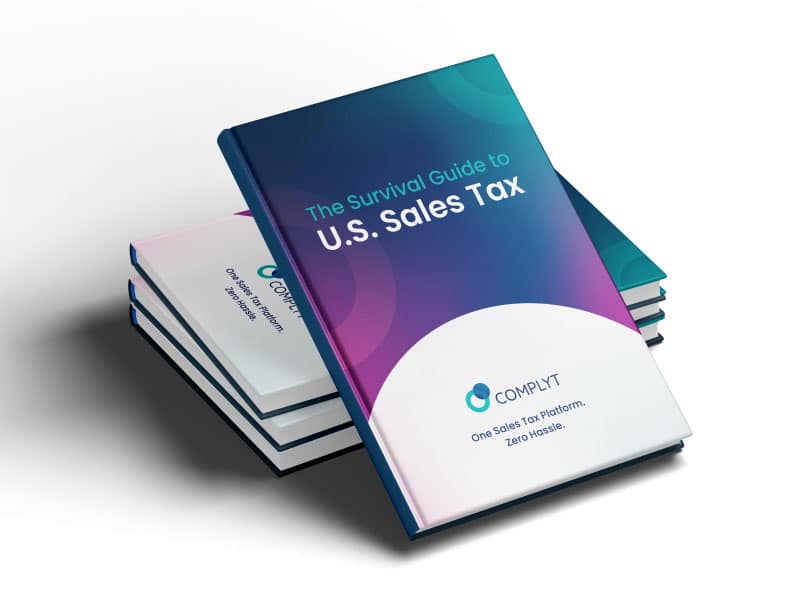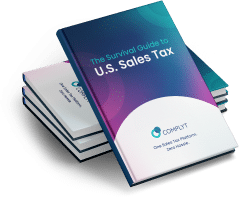What is the sales tax rate in West Virginia?
West Virginia has a statewide base sales tax rate of 6%. The tax is imposed on the sale, lease or rental of tangible personal property and some services. Local municipalities in West Virginia are authorized to collect an additional local sales tax of up to 1%. Therefore, the total sales tax rate in West Virginia could be as high as 7% in certain localities.
It’s essential to note that the tax rate varies based on the destination of the sale (where the product is shipped or picked up). Therefore, businesses should calculate the sales tax rate based on the location of the purchaser rather than the location of the business.
When should your business collect Sales Tax in West Virginia?
Businesses in West Virginia are required to collect sales tax from their customers in certain circumstances. If your business has a physical presence (nexus) in West Virginia, you are required to collect sales tax on sales made to customers in the state.
Furthermore, West Virginia has an economic nexus law, meaning that if your business exceeds a certain threshold of revenue or transactions in the state, you are also required to collect sales tax.
The sales tax collected must be remitted to the West Virginia State Tax Department by the due date of your sales tax return. It’s essential to note that businesses should only collect sales tax on taxable goods and services.
West Virginia Physical Sales Tax Nexus
A business has a physical sales tax nexus in West Virginia if it has a substantial physical presence in the state. But that presence can take on various forms.
Sales Tax Physical Nexus checklist for West Virginia
- Physical presence: Owning or leasing a property, such as an office, store, or warehouse, in West Virginia.
- Employees: Hiring employees who work, live, or conduct business in West Virginia.
- Inventory storage: Storing goods or inventory in a warehouse, fulfillment center, or other location in West Virginia.
- Affiliate nexus: Having relationships or partnerships with businesses or individuals in West Virginia who refer customers to your business.
- Trade shows or events: Participating in trade shows, fairs, or events in West Virginia where you make sales or promote your products.
If your business meets any of these criteria, you likely have a physical sales tax nexus in West Virginia and should collect and remit sales tax on sales made to customers in the state.
West Virginia Economic Nexus Threshold: Revenue, Thresholds and Transactions
West Virginia also has an economic nexus law, which requires out-of-state sellers to collect sales tax if they exceed certain revenue or transaction thresholds in the state.
The economic nexus threshold in West Virginia is $100,000 in gross revenue from sales into the state or 200 separate transactions in the previous or current calendar year.
Once your business reaches these thresholds, you are required to register for a sales tax permit, collect sales tax, and file sales tax returns in West Virginia.
Which services are taxable in West Virginia?
In West Virginia, some services are considered taxable, while others are not. If your business offers a service that is taxable, you are required to collect sales tax on those services.
Here’s a list of just a few taxable services in West Virginia:
- Repair and maintenance services
- Personal services (e.g., beauty salons, barber shops)
- Professional services (e.g., legal, accounting, consulting)
- Printing services
- Telecommunications services
- Security services
It’s important to note that not all services are taxable, and there may be exceptions to the rule. Businesses should consult with the West Virginia State Tax Department to ensure they are collecting and remitting sales tax correctly.
West Virginia Sales Tax on Products: How to Calculate What Your Business Should be Charging
Calculating sales tax in West Virginia is relatively straightforward. First, determine the base sales tax rate of 6%, and then add any local sales tax rate (up to 1%). Multiply the total sales tax rate by the taxable sales amount, and that’s the sales tax you should charge.
For example, if you’re selling a product for $100 in a locality with a 1% local sales tax rate, the total sales tax rate would be 7%. Multiply the sales tax rate (0.07) by the product price ($100) to get the sales tax amount ($7). So, you would charge $107 in total.
How much is the West Virginia clothing tax?
In West Virginia, clothing is subject to the state’s sales tax of 6%. In addition, local municipalities may impose an additional sales tax of up to 1%, making the total possible sales tax on clothing as high as 7%. It’s essential to note that the local sales tax rate varies depending on the location where the transaction occurs.
Do West Virginia sales tax holidays affect West Virginia clothing tax?
West Virginia occasionally offers sales tax holidays where specific items, including clothing, are temporarily exempt from sales tax.
During these holidays, shoppers can purchase qualifying items without paying sales tax, providing a significant savings opportunity. The items eligible for the sales tax holiday typically include clothing and footwear priced at $125 or less per item.
It’s important to check the West Virginia State Tax Department’s website or consult with a tax professional for the most up-to-date information on sales tax holidays and eligible items.
West Virginia Online Sales Tax: Are SaaS and Digital Services Taxable?
In West Virginia, Software as a Service (SaaS) and digital services are generally considered taxable. Businesses that sell SaaS or digital services to West Virginia customers must collect and remit sales tax, provided they have a sales tax nexus in the state.
SaaS Sales Tax West Virginia: Who needs to collect sales tax on SaaS subscriptions?
The sale of all cloud software subscriptions to customers in West Virginia is subject to sales tax. So even if you’re an out-of-state SaaS provider, you’ll need to start collecting West Virginia sales tax the moment you trigger a nexus within the Mountain State.
How can a business get a sales tax permit in West Virginia?
To collect sales tax in West Virginia, businesses must first obtain a sales tax permit. Here’s how to get a sales tax permit in West Virginia:
- Visit the West Virginia State Tax Department’s website and access the online Business Registration System.
- Complete the required information, including business details, owner information, and sales tax-related questions.
- After submitting the application, the State Tax Department will review it and issue a sales tax permit, usually within a few weeks.
There is no fee to obtain a sales tax permit in West Virginia, but businesses are required to renew the permit annually.
Collecting Sales Tax in West Virginia as a Business
As a business operating in West Virginia, you are responsible for collecting the appropriate sales tax from customers and remitting it to the West Virginia State Tax Department. Here are some key points to remember:
Determine the sales tax rate: The sales tax rate in West Virginia is 6%. Local municipalities may impose additional sales tax, so it’s essential to know the exact rate for your business location.
Apply for a sales tax permit: Before you start collecting sales tax, you must obtain a sales tax permit from the West Virginia State Tax Department.
Collect sales tax at the point of sale: Add the sales tax to the total cost of the taxable item or service when making a sale.
Keep accurate records: Maintain thorough records of your sales and the sales tax collected, including invoices and receipts.
File sales tax returns: File your sales tax returns according to the frequency determined by the State Tax Department (monthly, quarterly, or annually).
Remit the sales tax: Pay the collected sales tax to the West Virginia State Tax Department by the due date.
West Virginia Tax Return Due Dates Explained
Sales tax return due dates in West Virginia vary depending on the filing frequency assigned to your business. Generally, due dates are as follows:
- Monthly filers: Due on the 20th of the following month
- Quarterly filers: Due on the 20th of the month following the end of the quarter
- Annual filers: Due on January 31st of the following year
It’s important to note that if the due date falls on a weekend or holiday, the return is due on the next business day.
The frequency for filing sales tax returns in West Virginia depends on your sales volume:
- Monthly: If your tax liability exceeds $250 per month
- Quarterly: If your tax liability is less than $250 per month but more than $600 per year
- Annually: If your tax liability is less than $600 per year
The West Virginia State Tax Department will notify you of your filing frequency when you obtain your sales tax permit.

